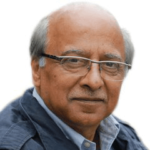Can the inherently contradictory PDM components become an alliance formidable enough to oust the PTI government?
The Pakistan Democratic Movement (PDM) has been creating waves since the newly formed 11-party opposition alliance held its first public meeting in Gujranwala on October 16, but many are sceptical about its future. A number of analysts highlight the inherent contradictions and clash of interests among its major component parties, but there are others who say that the Pakistan Muslim League-Nawaz’s (PML-N) anti-army rhetoric is making even the staunchest opponents of Prime Minister Imran Khan’s government wary of crossing this red line. Narratives asks four senior journalists what their view is on the future of the PDM.
Analysts & their perspectives…

Shaheen Sehbai
The PDM was formed in a hurry to protect the three big partners — the PML-N, the PPP and the JUI — from the onslaught by the government and state against them for their alleged corruption. Other smaller parties and groups also sought shelter under the PDM umbrella in the hope of bolstering their bargaining position. However, the alliance is a non-starter. It has neither a principled political agenda, nor any democratic motives. It has just a single goal: to remove Prime Minister Imran Khan from power. Apart from rallies, how it seeks to do so has not been clarified.
Apparently, the idea was that massive rallies on the streets would create enough pressure on the Establishment to promise the opposition leaders some relief from the accountability process and persuade Imran Khan to back off — at least a little. The entire exercise backfired.
The street shows did not produce a mass turnout; instead, every event produced a new controversy which damaged the PDM. Starting off with Nawaz Sharif’s tirade against the army, to the desecration of the Quaid’s mausoleum, the talk of Baloch separation and then the Ayaz Sadiq outburst against the army, it has been so far, so bad.
Meanwhile Imran Khan turned even more rigid in his resolve to have accountability, and the Establishment, instead of coming under pressure, came out publicly against what it considered as overt blackmail. Now all backdoor channels have been publicly shut and Nawaz Sharif has become a big liability for his own party.
The fallout: cracks have started appearing in his party, and people have started speaking out and deserting the N-Titanic which has hit a huge iceberg in very cold waters.
Making matters worse for Sharif, are his coalition partners. Trusted JUI aides of Maulana Fazlur Rahman have been heard speaking out against the PML-N supremo. And the PPP seems uninterested and has sidelined itself.
The future of the PDM is bleak, and its sole target of ousting Imran Khan seems to be even further away. It is only a matter of time then that the other components of the PDM will drift away.

Mazhar Abbas
The Imran Khan government has, in the face of so many challenges, proven its mettle and worked out each affair that previous governments were reluctant to touch. Whether it is the global pandemic, Covid-19, in regard to which Khan took the lead with a ‘smart’ lockdown which the world is now taking cues from; the realm of foreign affairs where we panicked earlier, but are now making friends and are increasingly assuming a laid-back role; or matters at home where the opposition irks him non-stop, his government seems to be braving it with grit.
It certainly hasn’t been an easy ride. All the problems Pakistan faced when the PTI assumed power just multiplied thanks to Covid-19, even though the government responded fairly well. Meanwhile, the opposition has continued to mount pressure, but for the most part ineffectively, as it remains inchoate and unfocused on the real issues. It is amazing that all the parties combined are not posing any really potent opposition to this government. IK has been dealing with them quite effortlessly, probably because of their lack of a coherent and meaningful narrative.
If the PTI trumps the Senate elections, it will emerge as an overtly strong political party. The threats they may face then will probably be from within the party itself and the rising food inflation, among other things.
Yes, there are challenges, but the indications are that the Imran-led government will face them and steer Pakistan through them, clearing any impediments along the way. The year, the third down the line for the Imran Khan government, will conclude better.

Imtiaz Gul
PDM’s component parties will likely retain their individual identity and character in the months and years to come, but it will probably not survive as an alliance of parties so disparate in nature who speak a conflicting and competing lingo. Most of them represent the status quo — largely driven by the desire to stay politically relevant and with the common goal of getting rid of Prime Minister Imran Khan.
With the recent controversial statements by Nawaz Sharif, followed by those of Sardar Ayaz Sadiq — essentially targeting the army — the PDM has already suffered dents in its ranks, starting with the resignation of General Qadir Baloch from Balochistan.
It is quite obvious that both Sharif and Sadiq have acted as ‘Trojan Horses’ — attempting to prick the security establishment like never before. But they have crossed the red-line around national interest in doing so, and eventually this step may prove to be the noose around the PDM’s neck — unless all components of the alliance go along with the extremely irresponsible Sharif narrative and gang up against the army. Chances are they will see through the games Sharif seems to be playing to keep his daughter Maryam relevant to the country’s politics — going all out against the army sitting in the safe haven of London while they in Pakistan certainly don’t have that luxury. And most of them are wedded to Pakistan. They then will probably chart a relatively safe path, unlike the nihilistic one Sharif has embarked on. So this difference of approach has already set limits on what the PDM can do.

Dr. Jabbar Khattak
The formation of the PDM was the logical consequence of pushing all the opposition parties — the components of the alliance — against the wall by the PTI government as well as by the Establishment.
The target of the PDM is not only confined to the removal of the PTI government, but also to put an end to the alleged hostile attitude of the Establishment against them. The PDM has openly demanded the impartiality (preferably the partiality towards them) of the Establishment.
Although there is a lack of trust among the component parties of the alliance, they have in the past few months developed more unity between them and a greater measure of confidence, which has bolstered the PDM.
Meanwhile, the PPP is engaged in an intensive election campaign in Gilgit-Baltistan, where there are bright chances of an overwhelming victory. It is speculated that in case of a PPP victory in the Gilgit-Baltistan election and in this event the formation of its own government there, it may lead to a weakening of the PDM, but even so, the PPP will have no other option but to remain an integral and important component of the alliance till at least the proposed Islamabad sit-in of January 2021. A successful show in Islamabad would further strengthen the PDM.
Even in the event of failure of the proposed sit-in, it would not dismember the PDM, even if the PPP’s zeal for the alliance may abate. In that situation, the PPP would probably just adopt a formal status in the PDM in the hope that in the face of a unified opposition, the Establishment would have no alternative but to make a PPP-friendly gesture in the future.



